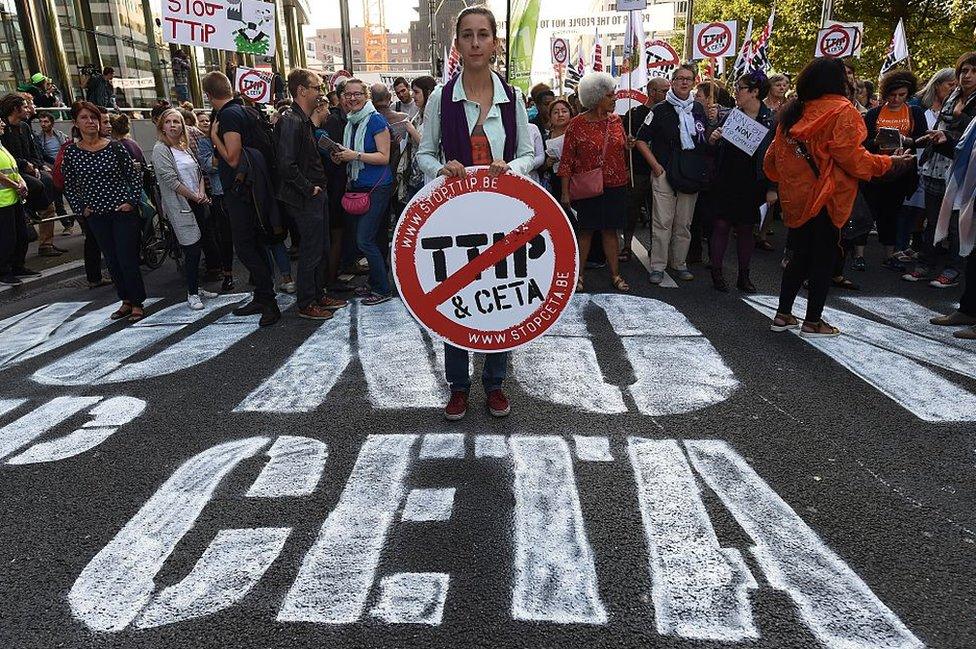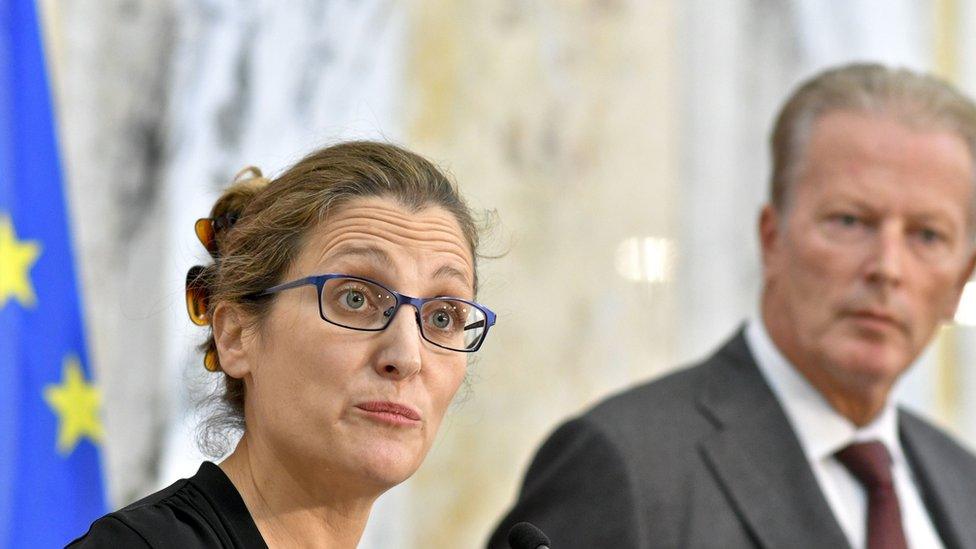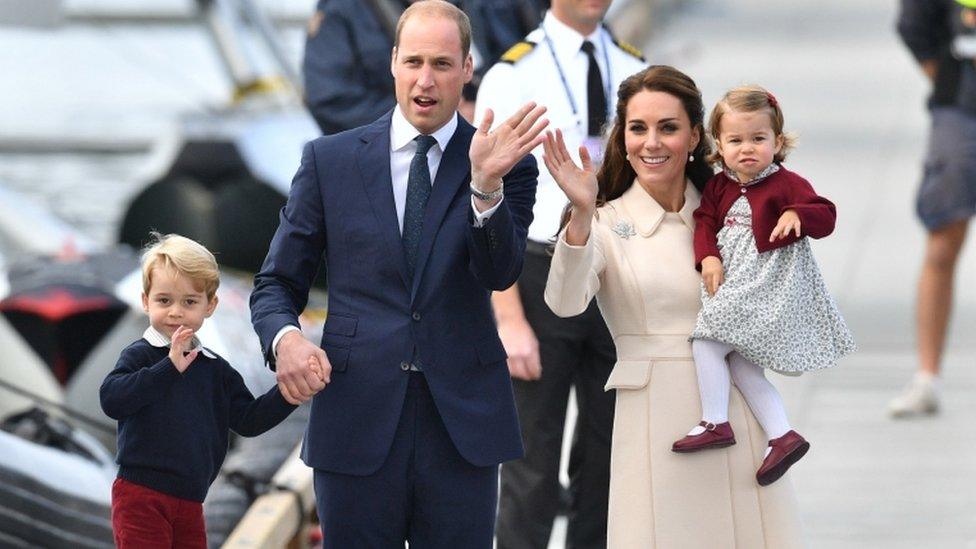Belgian province may sink EU-Canada trade deal
- Published

In September protests were held in Brussels to oppose trade deals, including CETA
A long-awaited trade deal between Canada and the European Union could be halted by a region of Belgium.
The Comprehensive Economic and Trade Agreement (CETA) requires the unanimous support of all 28 EU member nations.
Belgium's French-speaking government in the southern region of Wallonia looks likely to block it due to fears that it could lead to a flood of cheap imports.
Belgium's federal government approves of the deal, but must get confirmation from the country's three regions.
CETA's failure could throw a spanner in ongoing trade negotiations with the US and Japan, and cast doubt on the likelihood that a post-Brexit Britain could negotiate a speedy and favourable deal with Europe.
"If the EU cannot do a deal with Canada, I think it is legitimate to say: Who the heck can it do a deal with?" Canadian International Trade Minister Chrystia Freeland said in June.
EU trade ministers will meet next week to decide on the way forward.

Canadian International Trade Minister Chrystia Freeland (L) is reaching out to delegates from Wallonia
"We had hoped that the negotiators would have at least tried to find some improvements, some corrections for Belgium. Today that hasn't happened," Andre Antoine, president of the Walloon regional parliament, told reporters.
Wallonia residents fear that the deal overly protects foreign multinational companies, and will threaten the livelihood of local beef and pork producers.
Christopher Sands, who is the Director of the Center for Canadian Studies at Johns Hopkins University, says that Britain's vote to leave the EU spelled doom for CETA from the start.
The UK is Canada's largest trading partner in Europe, and without its influence, Canada has much less leverage in trade negotiations.
"Canada is in an unexpected quandary," Mr Sands told the BBC.
The requirement that not just all member states, but also all regional governments ratify the agreement is unprecedented, said Mr Sands, adding that the dispute process is still unclear.
The Walloon parliament will meet on Friday to officially decide its stance.
If EU trade ministers do ratify the deal, then Canadian Prime Minister Justin Trudeau will follow through on his scheduled visit to Brussels later this month where he is to sign the agreement.
Canada's parliamentary secretary for International Trade has been meeting with delegates from Wallonia to advocate for the deal, Alex Lawrence, a spokesman for the international trade minister, told BBC News.
- Published6 October 2016

- Published29 September 2016
- Published2 October 2016
